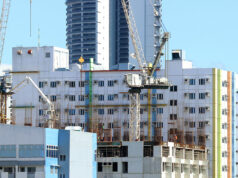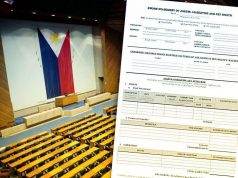Fiscal deficit halved in September
By Elijah Joseph C. Tubayan
Reporter
THE NATIONAL GOVERNMENT’s fiscal balance swung to a deficit in September from August’s surplus, a gap that was halved from a year ago as revenues surged and expenditures slipped, according to latest data the Bureau of the Treasury (BTr) released yesterday.
September saw a P36.9-billion deficit, 51% smaller than the P75.3-billion gap recorded in 2016’s comparable month, a reversal from August’s P28.8-billion surplus and 48% short of a P71-billion program set for last month.
Overall revenues grew 21% to P200.1 billion from the past year’s P166 billion and topped a P184.6-billion target that month by eight percent.
Of that amount, tax revenues totaled P183.4 billion, up a fourth from the past year’s P147.8 billion and surpassing a P169.3-billion goal also by eight percent.
Both key state revenue collectors saw significant improvements, with the Bureau of Internal Revenue (BIR) raking in 25% more in September at P141.4 billion from the P113 billion seen in the same month last year, helping it exceed its P126.8-billion target for the month by 12%.
The Bureau of Customs (BoC), on the other hand, took in P40.3 billion, 21% more than last year’s P33.3-billion take, but two percent short of its P41-billion target.
Expenditures, on the other hand, declined by two percent to P237 billion in September from P241.3 billion in the same month in 2016, falling seven percent short of a P255.6-billion target.
Taking out interest payments, state spending edged up by one percent to P210.6 billion from P208.7 billion a year ago, but still fell four percent short of a P219.6-billion target for September.
While Budget Secretary Benjamin E. Diokno had yet to respond to a request for explanation as of early yesterday evening, Ruben Carlo O. Asuncion, chief economist at Union Bank of the Philippines, Inc., said via e-mail when sought for comment that while he had yet to “check the numbers… this is really the challenge: spending the money.”
The nine months to September saw a P213.1-billion deficit that was nearly flat from the past year’s P213.7-billion gap but was still 38% off a P345.2-billion program.
“The Q3 fiscal deficit of P58.6 billion is also lower than the P93.4 billion recorded in the same quarter last year,” the Treasury said in its press statement.
Revenues grew nine percent to P1.802 trillion from P1.647 trillion in the same comparative nine months, just slightly exceeding a P1.793-trillion target.
Tax revenues alone increased by 11% to P1.639 trillion from P1.473 trillion, though they fell two percent short of a P1.666-trillion target.
Collections of the BIR grew 11% to P1.299 trillion from P1.171 trillion, though they fell a percent short of a P1.317-trillion target, while those of the BoC rose by 12% to P323.8 billion from P287.9 billion but were four percent off a P336.9-billion goal.
Expenditures increased by eight percent to P2.015 trillion as of September from P1.86 trillion a year ago, but still fell six percent short of a P2.138-trillion program in 2017’s first nine months.
Stripping out interest payments, spending grew 10% to P1.766 trillion from P1.611 trillion in the same comparative nine months, though missing a P1.869-trillion goal by six percent.
“It seems, overall, spending is advanced and essentially on track. The spending decline is marginal,” UnionBank’s Mr. Asuncion noted in his e-mail.
While revenues are now closely watched as the government scales up spending on infrastructure and social services in a bid to prod economic growth to a faster 6.5-7.5% this year from 2016’s 6.9% and to 7-8% annually in 2018-2022 from 2010-2015’s 6.2% average, perceived delays in infrastructure rollout has begun to cause concern, with the World Bank earlier this month slashing to 6.6%, from the 6.9% and 6.8% in January and July, respectively, its 2017 Philippine growth outlook in the face of “slower-than-expected implementation of public investment projects.”




